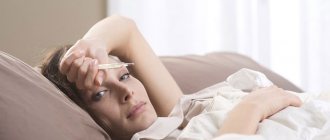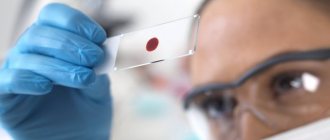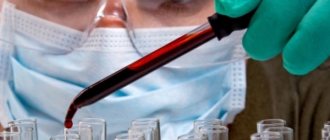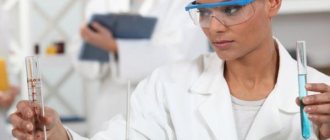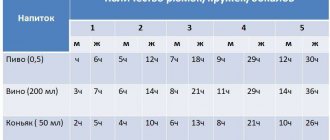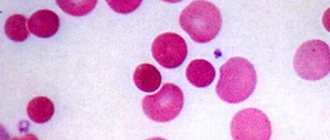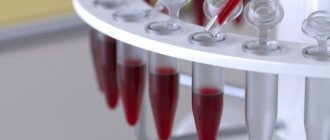A blood test is one of the most revealing diagnostic procedures.
Using this analysis you can determine:
- General condition of the patient’s body;
- The effectiveness of the therapy;
- Identify various violations.
However, failure to comply with the standards of preparation for passing the analysis may have an impact on the overall performance of the indicators. The best outcome in such circumstances would be to have the test repeated. The worst thing is an inaccurate diagnosis and, accordingly, the use of incorrect treatment therapy.
Why is blood donated on an empty stomach?
Taking blood on an empty stomach is one of the basic rules when undergoing such diagnostics. However, when setting such a restriction. So, when collecting blood for diagnosing HIV, the fullness of the stomach does not play any role.
But food intake affects the following standard blood parameters:
- Increased concentration of fats and proteins;
- Activation of the enzymatic system;
- Increasing the level of hormonal saturation;
- Changes in blood viscosity.
Therefore, it is better not to neglect the recommendation on stomach fullness before diagnostic blood sampling. This can cause false positive results during diagnosis, and as a result, an incorrect diagnosis.
Let's summarize
The main purpose of the article is to tell the reader what the word “fasting” means. Show the difference between it and “on an empty stomach”. Let's highlight the main aspects:
- The root of the word “on an empty stomach” is “lean.” What makes people skinny? From malnutrition and starvation.
- From a medical point of view, “on an empty stomach” means that this is the time period from the moment of waking up to the first breakfast. But no more than 10 o'clock in the morning.
- As for the hungry stomach, this period occurs after 10 am, when the body is no longer able to tolerate hunger. It begins to consume its own reserves, and if they are not there, it feeds on the cells of the internal organs.
- Tests are taken on an empty stomach because nutrients obtained from food are absorbed into the blood and change its parameters. The fasting sugar level should be up to 5.5 mmol/l. After eating, blood sugar rises, and this will lead to an inaccurate analysis.
- The difference between the concepts of “on an empty stomach” and “an empty stomach” is that in the first case the body can be hungry for a certain time. In the second, as described above, he begins to eat himself.
What can you eat before donating blood?
You can eat 10 hours before blood sampling, since even a slight saturation of the bloodstream with carbohydrates can change the number of leukocytes, namely a subsequent increase in their number.
Food intake affects:
- Biochemical composition of blood;
- Diagnostics for glucose levels;
- Hormonal indicators.
Depending on the diagnostic purposes of the analysis, breakfast is sometimes allowed.
However, you must adhere to the following recommendations:
- Avoid dairy products.
- Meat dishes are prohibited.
- Don't eat bananas.
- You can't eat eggs.
The ideal breakfast is considered to be a combination of porridge with the addition of dried fruits.
Preparing for the study
So how to correctly take a biochemical blood test in order to get undistorted results? Let us remind you of the recommendations on how to donate blood correctly, following which you will be able to obtain the most accurate information about the condition of your body.
How to take a biochemical blood test correctly:
- Two days before the test, you need to exclude fatty, spicy, salty and smoked foods, as well as drinks with high sugar content from your diet. Alcohol consumption is also contraindicated. Depending on the indicators used in the biochemical blood test, the doctor may prohibit the consumption of certain types of foods.
- The day before donating blood for biochemistry, it is important to limit physical activity on the body, as well as avoid stress and other emotional experiences that can cause disruptions in the hormonal system.
- Before donating blood, you cannot carry out ultrasound examinations, x-rays, or physiotherapeutic procedures for at least one day, since these studies cause changes in plasma parameters.
Some measurements, such as bilirubin levels or glucose concentrations, may require additional requirements. The doctor who prescribes this examination to the patient must give detailed recommendations for proper preparation for the test.
Doctors' recommendations on nutrition the day before the test
Sometimes the doctor determines and explains certain rules for preparing the patient before drawing blood for diagnosis.
Common ones are:
- The day before the procedure, refrain from taking medications and food.
- Before some tests, snacks are possible. However, there should be a gap of about 3 hours between blood collection and the last meal.
- Do not eat fatty, spicy or sweet foods.
- Do not eat fruits, namely citrus fruits and avocados.
- Avoid spices completely.
How to have dinner the night before the exam?
The evening meal before blood sampling for diagnostics should also comply with the recommendations.
You can eat before donating blood from a vein:
- The best option for dinner is porridge;
- You can complement the side dish with vegetables, both raw and fried;
- Fish and meat dishes, but low-fat varieties, are acceptable for dinner;
- Season all food with olive or sunflower oils;
- You can add honey, but in small quantities;
- Fruits you can eat are apples, plums, pears and pomegranates.
If blood will be donated to determine the glucose level, then before donating blood from a vein you cannot:
- Eat foods rich in carbohydrates.
- There are baked goods and sweet drinks.
- Fruits, namely grapes and bananas, are not allowed in the diet.
Additional tests
Testing for tumor markers is a fairly common testing option. It is recommended to take it with the same preparation as for regular biochemistry. In particular, blood sampling to test for tumor markers is performed from a vein. To obtain reliable results, the test must be taken on an empty stomach. In particular, at least eight hours before taking the test for tumor markers, it is necessary to avoid eating food.
Tumor markers, which are determined by such an analysis, are substances that are formed as a result of the vital activity of cancer cells. Sometimes tumor markers are also formed as a result of the work of normal cells.
If tumor markers were found in the patient’s urine or blood, this may indicate the presence of cancer
It is worth emphasizing that such studies for tumor markers help to obtain the earliest results in comparison with other types of diagnostics, which is very important in the treatment of such diseases.
Recently, tests for tumor markers have been recommended more often. This is due to the deterioration of the environmental situation, which seriously increases the risk of cancer. Identifying it at an early stage can help in successful treatment.
Rules to follow
There are general recommendations that must be followed to obtain correct blood counts:
- Before the manipulation you need to get enough sleep.
- Do not take sedatives or teas.
- Before drawing blood from a vein, it is necessary to remove any pressure from objects or accessories on the vessels.
- If you need to donate blood from your finger , it is better to remove the rings.
- There are people who are terrified of the sight of blood. If the patient belongs to this category, he must notify the attending medical staff in advance.
- Try to relax during the procedure.
Before taking a general blood test
A general blood test implies certain instructions to achieve reliable indicators:
- Blood sampling is carried out in the morning on an empty stomach.
- Before carrying out the manipulation, it is necessary to exclude physical exercise and stress.
- After drinking alcohol, at least 1 hour must pass before blood is drawn.
- It is advisable to suspend treatment and preventive measures.
- If blood donation takes place throughout the day, then the last meal is taken 3 hours before the procedure.
Conducting research
To ensure that the examination results are not distorted by random factors, the patient must follow the following rules on the day of the test:
- Blood is donated for biochemistry on an empty stomach. At least 12 hours must pass between eating and taking blood for biochemical testing. However, fasting for more than 48 hours is also undesirable. Before taking blood in the morning, you should not eat any food or drink any drinks, including clean water.
- You can take any medications only in case of emergency and with prior agreement with your doctor, since blood biochemistry in this case changes significantly. Moreover, it may take several days to completely remove some drugs from the body, so this issue should be discussed in advance with your doctor.
- Before donating blood, it is not recommended to smoke for at least 40-60 minutes, since nicotine affects the body's production of certain biologically active substances and increases the number of red blood cells and glucose concentration.
- Plasma should be donated in a calm state. Even if you are late for an examination, you should not go into the laboratory out of breath. You must sit in the waiting room for at least 15 minutes before taking the test until your plasma levels return to normal.
- During sample collection, the patient should be in a sitting or lying position, in a relaxed state.
- Is blood donated from a vein or from a finger? For research, only blood is taken from peripheral veins. It is most convenient to take a sample from the cubital vein. However, if this cannot be done, for example, due to injury or burns to the hands, then the sample is taken from a vein in the lower extremities or on the hand.
- Before collecting the sample, the area of skin where the blood is taken is wiped with an antiseptic solution. Most often, a solution of ethyl alcohol or hydrogen peroxide is used for this.
- To draw blood, use a sterile disposable syringe or a special system for drawing blood from a vein. The analysis is taken only by an experienced laboratory technician.
- A sample of approximately 5-10 ml is placed in a completely dry and sterile tube and sent for examination.
The result is ready quite quickly. The time required for a laboratory technician to analyze the results obtained usually does not exceed several hours.
If, to monitor the effectiveness of treatment, the doctor prescribes a repeat test after a certain period of time, it is advisable to carry it out in the same laboratory. If all analyzes are done on the same equipment, using the same methods and using the same reagents, then their comparison will be more correct and accurate. Correct biochemical analysis will become the basis for an accurate diagnosis of the patient.
What should be done after such a procedure?
After taking blood, it is better to adhere to several rules so that the body quickly replenishes the reserves of missing substances in the bloodstream:
- After taking blood, it is better not to get up for a while.
- If you feel dizzy or feel weak, seek medical help.
- Do not remove the bandage for 4 hours.
- Try not to get the puncture site wet for a while. It is better to take a shower or bath the next day.
- Eat plenty and regularly.
- Drink increased amounts of water.
- You can only get vaccinated after 10 days.
What to do with food
Sometimes the doctor forgets to warn about the main thing - whether to take a blood test from a finger on an empty stomach or not. Such disputes lead to doubts among ordinary people. They do not understand how food eaten before the test will affect the test results. By the way, the doctors themselves do not have a common opinion. Some argue that an empty stomach is a prerequisite, while others are confident that an interval of 4 hours between the last meal and blood sampling is sufficient.
First you need to understand what a "fasting" is to study the analysis of a blood sample. This does not mean that the patient will have to fast all day before the test, and then struggle to get to the clinic with all his might. In fact, everything is not so sad. The day before the test, lunch can be hearty, but in the evening it is better to have dinner, avoiding heavy food and sweets, then get a good night's sleep, take something for a snack with you and go to the laboratory. After the blood is in the test tube, you can have breakfast - eat the prepared food.
So, we found out how a general examination of a blood sample in an adult is performed - on an empty stomach or not. However, among adults there are also pregnant women - this is a separate case.
The reason is that during pregnancy, prolonged hunger is very dangerous. So pregnant women should not risk their health. For them, the rules have been relaxed - pregnant women can eat 4 hours before taking a sample.
How to prepare for donating blood for hormones and sugar?
Before taking an analysis for the body’s hormonal levels and sugar, you need to prepare:
- The day before the procedure, do not eat sweets;
- Blood sampling is carried out strictly on an empty stomach;
- The best time will be in the morning.
Tests for hormones insulin and C-peptide
The effectiveness of the results obtained after diagnosis for insulin and C-peptide depends on the correct preparation of the patient for such selection:
- It is better to follow all the instructions of your doctor.
- Observe the time and day of the scheduled delivery.
- All medications must be discontinued before blood collection
- Adhere to the specific dietary habits before taking the analysis : the manipulation is carried out in the morning, on an empty stomach; the break in meals is about 16 hours; do not chew gum; Before donating blood, you can drink water from a vein without additives or various flavors.
- It is better not to worry and try to eliminate the impact of stressful situations.
For the hormone prolactin
Before taking blood for prolactin, you must adhere to the following instructions:
- Blood is taken in the morning, no later than 2 hours after waking up in the morning.
- The selection is carried out after a break in eating, which should be about 12 hours.
- You can't drink carbonated drinks.
- All medications must be discontinued.
For glucose
To take a blood glucose test, you must adhere to the following recommendations:
- Eliminate emotional stress, while physical exercise is encouraged.
- You can smoke before donating blood from a vein, but at least an hour must pass before collecting biological material.
- Drinking alcohol is not allowed.
- You need to stick to your normal diet for about 3 days.
You can read more about sugar levels in blood tests here.
How to take a clinical blood test?
A complete blood count (CBC) is carried out in clinical laboratories at clinics, hospitals, as well as in paid medical centers. The patient must come to the laboratory on an empty stomach in the morning with a referral given by the attending physician.
The patient is invited to the office, where he is seated and OAC is performed. Collection of biomaterial for general analysis can be carried out in 2 ways :
- Capillary blood collection from a finger. This method is used quite often in both children and adults. It is used in the study of basic indicators;
- Venous blood donation is carried out if the procedure requires a large volume of biological material. More often, this method is used when it is necessary to conduct an extended analysis and study additional indicators.
Algorithm for collecting biomaterial from a finger:
- The patient is seated on a chair;
- The puncture site on the ring finger is treated with a napkin or cotton ball moistened with alcohol;
- A puncture is made using a scarifier;
- The first drop of biomaterial is removed with a sterile cotton ball, since alcohol remaining on the surface of the skin may get into it;
- Blood is drawn, after which a cotton ball with alcohol is applied to the wound.
Algorithm for donating biomaterial from a vein:
- The patient is seated;
- A venous tourniquet is applied to the forearm;
- The patient is asked to make a fist and then squeeze it;
- A vein is punctured and biomaterial is collected using a syringe. Recently, when donating blood from a vein, special vacuum tubes are used;
- The tourniquet is removed and the needle is removed from the vein;
- Cotton wool with alcohol is applied to the puncture site. The arm must be bent at the elbow and held in this position for 10–15 minutes to stop the bleeding.
What to do before donating blood for biochemistry?
Biochemical analysis of blood components allows you to assess the functionality of the whole organism.
This diagnostic procedure is used:
- Definitions of micronutrient deficiencies.
- Detection of various diseases.
- Characteristics of violations in the functionality of internal systems.
The biochemical composition of blood is influenced by external factors, so you must adhere to the following rules:
- 3 days before the collection of biological material, avoid drinking alcohol.
- Avoid physical activity.
- Blood is collected only on an empty stomach.
- Stop taking medications before the test.
- You are allowed to quench your thirst with clean water.
Water intake and its impact on the reliability of laboratory tests
Drinking water before taking blood for diagnostics is allowed, the main thing is that it complies with the recommendations:
- It was clean.
- Not carbonated.
- No added preservatives.
- Even minimal glucose levels are unacceptable.
It is better to stop drinking water an hour before the procedure.
What will happen to the body if you drink a glass of water on an empty stomach every morning? Nutritionist's opinion
The Turks say: it’s as easy as drinking a glass of water. Surprisingly, this simple habit can bring enormous benefits to our body, and you can feel positive changes within a few weeks.
So what will happen to the body if you start every morning with a glass of water on an empty stomach? Why does this elementary ritual have such a powerful effect?
How to drink water on an empty stomach?
Nutritionists recommend drinking a glass of water every day immediately after waking up, that is, on an empty stomach. This habit is not recommended for people with hypertension, a tendency to severe edema and urolithiasis. But for most, drinking a glass of water daily is absolutely harmless and has only positive effects. Of course, if you follow a few simple rules:
- Drink a glass of water within 10 minutes of waking up.
- The water should be still, clean, but not boiled. Filtered, bottled, spring and melt water are suitable.
- After drinking a glass of water, you need to have breakfast, but not earlier than 45 minutes later.
Photo: istockphoto.com
What kind of water should you drink on an empty stomach: cold or hot?
Perhaps the most controversial point when drinking water in the morning is the temperature of the liquid. You definitely shouldn’t drink ice water or boiling water - there will be no benefit from such drinking, and harm to the body is almost inevitable. As for the rest, expert opinions differ, because water of different temperatures has different effects on the body.
- Cold water (15-20 degrees) irritates the gastric mucosa and stimulates the body to produce energy. Therefore, a glass of cold water helps to cheer up and feel a surge of strength.
- Water at room temperature (20-27 degrees) effectively stimulates the gastrointestinal tract and helps normalize digestion.
- Warm water (35-40 degrees) better promotes rejuvenation and cleansing of the body, stimulates metabolism
A risky experiment. What happens to the body if you don’t drink water for three days?
Such a tough test for the body can lead to unforeseen consequences.
The tradition of drinking water in the morning came to European culture from the east. In China, India and Japan, this habit is considered one of the secrets of longevity. Therefore, experts are often inclined to believe that the water temperature should reach 35-40 degrees. But many parameters depend on the individual characteristics of the body, so it is best to choose the optimal temperature based on your own experience. You can switch to colder or hotter water after two weeks. By listening to how you feel, after a while you can determine the best water temperature for you.
What happens to the body if you sleep less than 5 hours a day
Let's figure it out together with a somnologist.
Seven reasons to drink warm water on an empty stomach
Water, in general, is a necessity for our body. You need to drink as often and as much as possible, while listening to individual characteristics and desires. Experts also talk about this.
Anna Berseneva, nutritionist:
What process underlies the maintenance of our health and youth? Of course, regeneration. This is a renewal process at the cellular level. Regeneration is impossible without drinking enough water, because dehydration blocks all recovery processes.
Separately, it should be emphasized that most enzymatic and chemical reactions take place with the participation of water. Through the lymphatic system and blood flow, it promotes the movement of many elements - nutrients, hormones, oxygen and antibodies. And this is the basis for the health of our immune system.
Photo: istockphoto.com
The effectiveness of drinking a glass of water on an empty stomach is due to a whole range of reasons. Let's highlight seven properties that make this habit extremely useful.
Cleansing the body of waste and toxins
During sleep, the body undergoes restoration processes and breaks down toxins. Warm water helps get rid of harmful substances and more effectively cleanses the walls of the intestines and stomach.
Improved metabolism and weight loss
Medical studies have proven that drinking a glass of water daily on an empty stomach speeds up metabolism by 20-30%. Organs and tissues are quickly supplied with oxygen, nutrients and useful substances. The consequence of an accelerated metabolism is an increase in the number of calories burned, which helps in the fight against excess weight.
Normalization of the digestive system
Drinking water in the morning stimulates the production of gastric enzymes and intestinal motility, reduces the acidity of gastric juice. This promotes faster digestion of food consumed during the day.
Photo: istockphoto.com
Strengthening the immune system
Drinking water on an empty stomach has a beneficial effect on the lymphatic system, making the body less susceptible to pathogens and infections.
Prevention of kidney and urinary system diseases
Warm water has a good diuretic effect, so drinking a glass of water on an empty stomach every day helps get rid of edema. It also reduces the risk of kidney stones and bladder infections.
Why do athletes eat bananas and are they healthy? Nutritionist answers
These berries are not suitable for everyone. And yes, we didn’t make a mistake.
Mood boost
The habit of drinking water in the morning has a positive effect on the nervous system. Thanks to this, irritability is reduced, sleep quality is improved, the overall tone of the body and, as a result, the emotional state increases.
Improved skin and hair condition
Drinking warm water helps thin the blood and normalizes the functioning of the circulatory system. Coupled with more effective removal of toxins, this leads to improved skin condition: acne, irritation and inflammation disappear, the growth of wrinkles slows down, and the shine and elasticity of the skin increases.
Water is also of great importance for hair growth and volume. Scientists have proven that drinking water on an empty stomach benefits your hair more than drinking liquid throughout the day.
Analyzes
We figured out what “on an empty stomach” means both from the point of view of the Russian language and as medical terminology.
Now let's talk about blood tests. Those who give up before eating.
- General clinical. Each of us had to take it more than once. In this case, blood is taken from a finger. This analysis allows us to identify inflammatory processes, infectious and hematological diseases.
- During a biochemical analysis, blood is taken from a vein. It is this that allows us to assess the functionality of our body. Assess the functioning of the kidneys, pancreas, liver, and determine if there are any malfunctions in these organs.
- Blood sugar test. The first time the blood is taken on an empty stomach, then the patient drinks a glass of sweetened water, and an hour later the blood is taken again. In this way, blood sugar levels are compared.
- Serological. Blood is taken from a vein. This analysis reveals the presence of viral and infectious diseases in the body.
- Hormonal analysis. The name speaks for itself. A deviation from the norm to a greater or lesser extent indicates the presence of diseases in the body.
FAQ
Is it necessary to donate blood from a vein on an empty stomach?
Food consumption should be no later than 8-12 hours before sampling. This is the time of assimilation, after which processes in the body are normalized.
Food intake affects the following indicators:
- enzyme activation;
- increasing the concentration of proteins and fats;
- change in viscosity;
- increase in hormonal saturation.
Food can cause false positive results, which is why you need to donate blood from a vein on an empty stomach. If this is not possible, collection is allowed at other times of the day, maintaining an interval of 6-8 hours from meals.
Can I drink water before donating blood?
There are no contraindications to drinking regular drinking water. Its composition has no effect unless sweeteners and dyes are used.
Is it possible to brush your teeth before donating blood?
If a biochemical analysis is prescribed, it is better to refrain from morning oral hygiene. It is not recommended to brush your teeth when testing for sugar, glucose, or urea. The paste contains triclosan, which affects the accuracy of the results obtained. Saccharin increases glucose levels. Foaming pastes can change the protein composition.
When taking hormone tests, there are no restrictions on brushing your teeth.
What time do you donate blood from a vein?
Usually the procedure is carried out from 8:00 to 10:00. This is the optimal time - 2 hours should pass after waking up. Before taking the test, a person should not experience physical exertion or become emotionally excited, so the morning is the best time. If you climbed the stairs, it is advisable to rest for 15 minutes. After the test, you can take the prescribed medications and have breakfast.
When should you not donate blood from a vein?
There are factors that distort the results. The procedure must be rescheduled if you:
- experienced increased physical activity and stress the day before or on the day of the test;
- took blood thinning medications unless specifically directed by a doctor;
- ate food less than 8 hours before the procedure.
How often can you donate blood from a vein?
This question worries people who need constant monitoring of indicators. Pregnant women and patients undergoing hospital treatment sometimes have to be tested every day. Don’t worry, the volume taken from a vein at a time is too small to have a negative effect on the body. Most patients do not notice blood loss.
Complete blood count: fasting or not?
To ensure that the results of the test do not disappoint, and the person does not have to go back for a repeat test, before the procedure it is worth preparing properly and learning how to take a general analysis of a blood sample: on an empty stomach, after eating a little or not?
So, two hours before taking the sample, it is recommended to give up cigarettes if the patient is a smoker. Why is this happening? If you break this rule, then after smoking the lumens of the blood vessels narrow, which complicates the outflow of blood.
Before the procedure, you should not drink sweet drinks; you should forget about morning coffee and even tea.
Recommendations
Answering the question whether a clinical blood test is taken on an empty stomach or not, it must be said that you will have to fast for some time. The day before going to the clinic, you should not eat junk food rich in fat. Alcohol and any alcohol-containing liquids (medicinal tinctures) are prohibited. The fact is that these substances increase cholesterol, which affects ESR.
You will have to temporarily stop taking medications that can affect blood clotting. If this cannot be done, then the doctor should be informed.
If there is an infection, virus, or bleeding in the body, there is no need to donate blood. It is better to postpone the study for a while. The patient will be able to receive reliable answers only seven days after complete recovery from the disease.
It is also worth remembering that various external influences sometimes affect the interpretation of the results. Before donating blood, you should not overload your body with physical training. This leads to the production of certain hormones, which will certainly distort the true picture of the analysis.
If the patient underwent medical procedures before taking blood: dental surgery, gastroscopy, colonoscopy, then the level of leukocytes in the blood will most likely rise. So you need to wait at least a week after undergoing such interventions, and only after that go to the clinical laboratory.
Attention! Improper transportation of blood samples may result in false results. To gain confidence in the answers, it is recommended to donate blood only in the same laboratory. After all, clinics use different reagents and indicators.
What does it mean?
What does the word “on an empty stomach” mean and why is it used? Taking a closer look at the word, we will see its root “skinny”. The association immediately comes with the word “skinny” - “emaciated”.
It’s not for nothing that they say: “He’s so skinny, he’s probably malnourished.” Excessive thinness is strongly associated with malnutrition. Now we have come to the key point. Skinny - malnourished, starving.
Therefore, what does “on an empty stomach” mean? Being hungry. This is how it works, we take tests hungry.
Which one is better to choose?
The main requirement for water is that it must be clean, but not boiled. You can't drink what comes out of the tap.
Mineral and carbonated drinks are also excluded. Suitable:
filtered (a regular household filter is sufficient);
- bottled;
- artesian, spring, spring and well (after carrying out appropriate analyzes and recognizing it as suitable for drinking);
- distilled (there is no consensus among experts here, because distillation helps to get rid of not only harmful, but also beneficial substances);
- frozen and thawed again (homemade alternative to melt water).
What should the temperature be:
- Cool (15-20°C) water will help instantly relieve lethargy, drowsiness and provide a boost of energy for the whole day.
- Water at room temperature (22-27°C) is most beneficial for the gastrointestinal tract.
- Warm (28-40°C) water effectively “washes away” digestive waste, waste and toxins, stimulates metabolism, and helps preserve youth and beauty.
Attention! You definitely shouldn’t drink boiling water or ice water. This harms taste buds, tooth enamel and the digestive tract.
Sugar after meals is lower than on an empty stomach what to do
When blood glucose levels rise during diabetes, the patient knows what measures to take to eliminate this phenomenon. But what to do if the readings rise not after eating, but before eating it? This is an unusual condition for diabetics, which can and should be dealt with. Study carefully how to do this to avoid unexpected complications.
When your fasting blood sugar is high, you are at risk for hypoglycemia. This means that high blood sugar will abruptly give way to low levels, which can cause severe and unpredictable complications. If your fasting blood sugar is higher than after a meal, then you need to fight this. To do this, you need to initially identify the reasons for this process.
High glucose levels before meals can be caused by the following reasons:
These are all the reasons that explain that fasting blood sugar exceeds the level after eating. Now let’s determine what this phenomenon is, how to treat it and what to do, you encountered this unexpectedly.
How to deal with the phenomenon
So, we have determined why sugar is lower after a meal than before a meal. Now let's talk about how to bring your fasting sugar back to normal. Based on the reasons that explain the process, there are several ways to combat this:
- Consult a doctor who will prescribe you medications that normalize hormonal levels;
- If high fasting sugar is caused by improper distribution of medications, then the doctor will prescribe you a different method of taking them and determine how long you will have to adhere to the new method;
- If you go to bed hungry, then stop doing it. On an empty stomach, your blood sugar will normalize if you drink a glass of kefir at night. But remember that this will be quite enough to maintain normal metabolism. You should also not overeat;
- If you have a cold, your fasting glucose will normalize if you consult your doctor and start taking additional medications.
So, we figured out what this phenomenon is and how to deal with it. And remember, if your blood levels are higher before meals, you need to consult a doctor. The reason why sugar is lower after meals may be hidden in unexpected phenomena that the doctor will determine very quickly.
Remember that following a special diet, regular physical activity and following all the doctor’s recommendations is your way to ensure that such phenomena never happen to you.
The rules described above should be followed not only by patients, but also by healthy people, since neglecting them can provoke the appearance and rapid development of the disease.
Biochemical analysis - strictly on an empty stomach
Before taking a biochemical blood test, it is recommended not to eat for 8-12 hours. Why is this so important?
A biochemical blood test is performed according to 11 criteria and allows the doctor to determine how the liver, kidneys, and cardiovascular system function. Therefore, it is fundamentally important to donate biological fluid without excess sugar and excess fat. Biochemical analysis allows us to detect the presence of diabetes mellitus, atherosclerosis, chronic inflammatory processes, heart attacks, strokes.
A biochemical blood test is taken strictly on an empty stomach, since incorrect blood sampling technology can misinform the specialist and lead to a diagnostic error.
